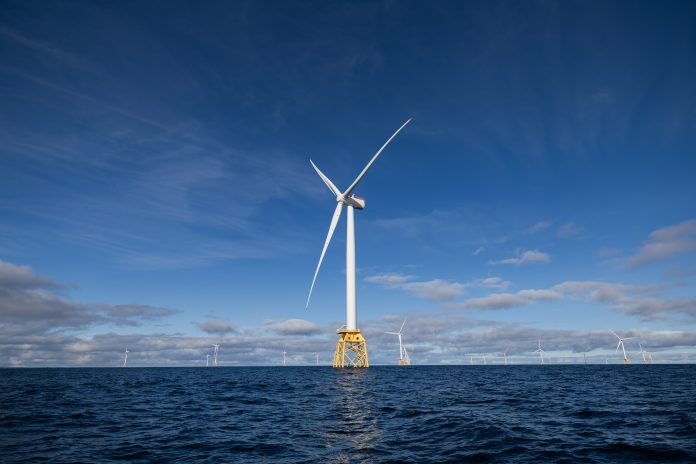Scottish Enterprise is helping businesses to gain a competitive advantage in the global shift to net zero – and transform our economy at the same time.
The next five to 10 years will be a defining time for Scotland’s economy as we make the energy transition from traditional fossil fuels to clean energy such as offshore wind and hydrogen. Scottish Enterprise believes that Scotland has the potential to be a global player in these emerging energy markets, securing employment, innovation and manufacturing supply chain benefits across our regions for decades to come. As Scotland’s national economic development agency with international reach, Scottish Enterprise is uniquely placed to help businesses focus on high growth opportunities. This will strengthen Scotland’s future competitiveness to unlock billions of pounds of investment in renewable industry companies, projects and infrastructure.
“Our core purpose is to help industries and businesses to innovate and scale up so that they can grow and transform the Scottish economy – that’s at the heart of what we’re here to do,” says Suzanne Sosna, Director of Energy Transition at Scottish Enterprise.
“The renewable sector draws on natural resources, like wind, wave and tidal power, that we have an abundance of, as well as our experience of working in challenging outdoor and subsea environments and our scientific and technological expertise. It is the future.”
Scottish Enterprise has recently adopted a new, mission-based approach, making it more focused and more in tune with what the economy needs now and in the future. “It’s a long-term commitment which requires a period of transition,” Sosna explains, “but it also reflects best practice globally where organisations are looking for innovative solutions to address the huge challenges we all face.
“For companies who already service oil and gas, it’s probably quite obvious to think about the renewables sector,” she says. “Similarly, there are SMEs in engineering services, who could be part of the new supply chain. While there are risks involved in diversifying, the potential rewards far outweigh them. Scottish Enterprise has a real role to play in mitigating some of that risk and supporting companies so that they can access these opportunities.”
Growth in offshore wind, the green hydrogen industry and the need to decarbonise homes and industry over the next decade could double the number of companies operating across our energy sectors – bringing 40,000 new jobs and an additional £1.5 billion of exports annually.
It is, she adds, an exciting, dynamic environment to be in, with lots of specialists who have not been in the energy sector before getting involved – from chemists and marine biologists to ornithologists – who work on everything from new technologies around clean energy to assessing their impact on the natural world.
The benefits of engaging with Scottish Enterprise are compelling. It has already done a huge amount of work to understand the opportunities of the energy transition sector and can help companies identify whether those opportunities are for them, explore global markets, identify funding and investors and make plans to scale up. It also works with partners across Scotland and the UK, running events and conferences to help companies engage and build networks with other businesses in this emerging sector.
“This is an opportunity to be part of a real change in the world that will impact on all of us.” says Sosna. “It’s the opportunity to be part of the next industrial revolution that will change how we live and work.
Scottish companies are uniquely placed to build on our competitive advantages, help transform Scotland’s economy and secure our place as a global player in the renewables sector. There is everything to play for.”
Find out more, visit: www.scottish-enterprise.com







